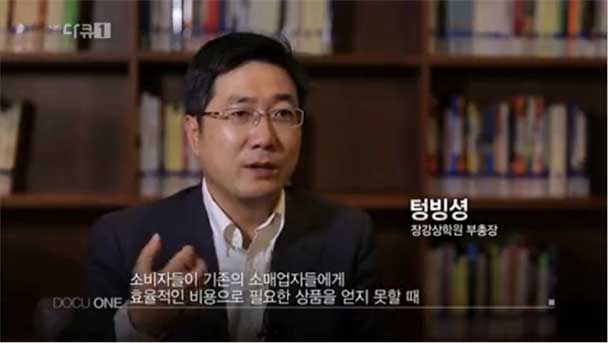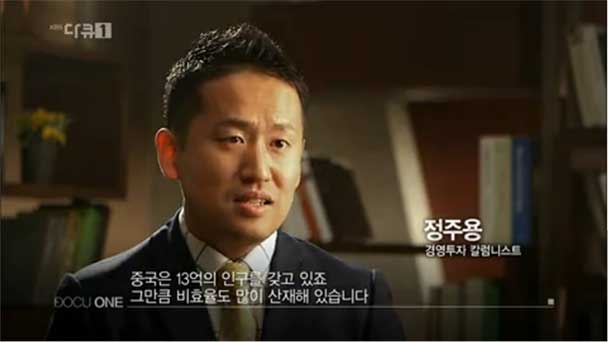As the Chinese market transforms from a production and supply base into the world’s biggest consumer market, China’s second and third-tier cities are increasingly at the center of this consumption-driven revolution. But why are foreign companies targeting smaller cities instead of most famous cities like Beijing or Shanghai?
“Docu One”, one of the most popular documentary programs on Korean Broadcasting System (KBS), shed light on the reasons and explored the changes taking place inside China. From July 9, 2015, “Docu One” aired a four-part feature documentary series under the theme of ‘The New Wealth of Nations – Inside China.’
In the second part of the series, titled ‘Dragon’s Change and Choice of Korea,’ successful businesses and their owners in second and third-tier cities in China were examined. CKGSB’s in-depth knowledge of the topic was also showcased through interviews with Professor Teng Bingsheng and business investment columnist Jeong Jooyoung, an alumnus of CKGSB.

Professor Teng Bingsheng’s interview on KBS ‘Docu One’ aired on July 10
Prof. Teng Bingsheng explained the correlation of urbanization and consumption stimulation in China as follows:
“GDP growth will drop to around 7 percent. As we want to make it sustainable, consumption will be the last driver that we have not tapped into. So if people can make enough money locally, they will be able to buy houses or apartments in these small cities which will translate into more consumption. That’s how the two [urbanization and consumption] are related.”
He also gave his insight on the latest e-commerce trends in China:
“If consumers cannot get what they need from traditional retailers in a very cost effective way, then the internet will provide a shortcut. That’s why Taobao and T-mall have been so influential. Probably, e-commerce has made a greater difference in China than in any other country. That’s why the Chinese leadership realized that if we can catch up to the global standard by focusing on the internet business, that’s really an opportunity of a lifetime.”

Business investment columnist and CKGSB alumnus Jeong Jooyoung also featured in the program
Jeong Jooyoung, an alumnus of CKGSB and a business investment columnist, also highlighted the importance of mobile in China’s economic system:
“An inefficiency problem is inevitable in China as about 1.3 billion people live in the country. Smartphones can be the key solution to this problem. Even an old lady living in a rural area can easily purchase a Burberry bag online. Such distribution, logistics and telecommunications revolutions have been triggered by the evolution of the mobile environment.”
To watch the documentary in full, please click here.